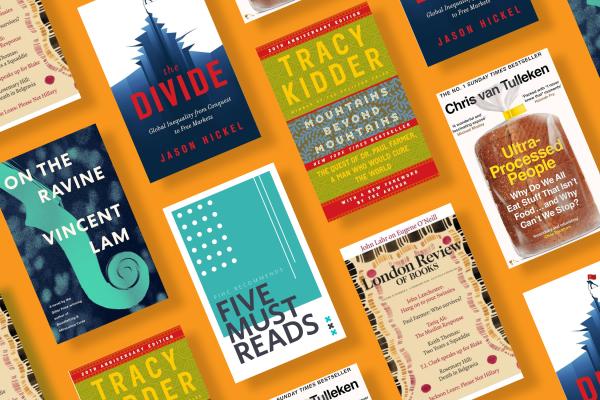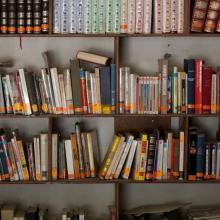As the leaves start to change, marking the beginning of a new academic year, Partners In Health Canada (PIHC) compiled a reading list of its own. In true back-to-school fashion, the PIHC team recommended fivearticles, books, and novels on the intersections of global health, social justice, and the social determinants of health.
Whether you are a beginner to global health equity or a seasoned academic or activist, you are sure to find value in the list below:
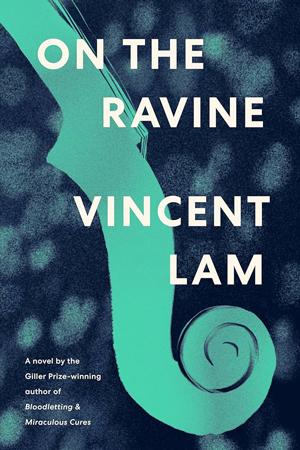
1. On the Ravine
Type: Novel
Author: Vincent Lam
Recommended by: Emily Antze (Senior Manager, Programs and Development)
On the Ravine is a novel about a doctor caring for drug-addicted patients in Toronto in the context of the contemporary fentanyl crisis. Although this is a work of fiction, the author, Vincent Lam, is himself a Toronto-based addictions physician, and writes about a reality he knows all too well. This is a story about doctors struggling to accompany their profoundly marginalized and vulnerable patients through treatment, with varying degrees of success.
Still, I felt a resonance with the PIH theme of “accompaniment”. When safe addiction sites are heavily politicized, writing this novel becomes an important act of advocacy, as it vividly depicts and humanizes experiences of addiction. It gives readers without a personal connection to opioid addiction an opportunity to better understand and replace fear with compassion.
You can hear Dr. Lam speak about his book on the CBC podcast ‘Front Burner’ here, find a short excerpt of the novel here, or listen on Audible.
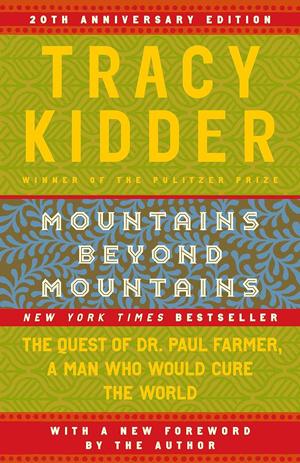
2. Mountains Beyond Mountains
Type: Book
Author: Tracy Kidder
Recommended by: Kisanet Tezare Guebru (Manager, Programs and Development)
As someone new to PIH before joining the team, I found this book to be an excellent introduction to Dr. Paul Farmer’s journey in becoming a revolutionary voice for communities unjustly denied access to quality health care. While Dr. Farmer’s humble beginnings in Florida might have influenced his desire to bring change for the poor, it’s fascinating to understand Haiti’s importance on his development as both a medical doctor and an activist.
Dr. Farmer was one of those rare figures who weaved fierce, evidence-based activism into his work, constantly pushing the boundaries of the global health system. He was the relentless advocate, tireless champion, and altruistic trailblazer. You won’t be able to put down this book because it transports you right into Farmer’s mind—his brilliance, humility, compassion, and his ability to make the impossible possible. Sometimes, it’s hard for me to believe this man existed at all, because the book reads like a fantasy; you know he’ll resolve a challenging situation, but you’re compelled to see how he does it.
This book will draw you in, and before you know it, you’re all in—committed to fighting the good fight alongside him, rooting for him to win, and never taking “no” for an answer. His fearlessness and courage in making health care equitable and accessible for thousands of marginalized people throughout the world are infectious. You’ve been warned! Listen here.
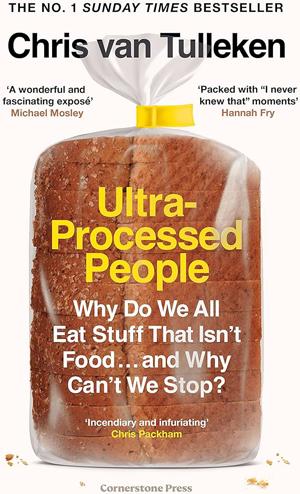
3. Ultra-Processed People: The Science Behind Food That Isn’t Food
Type: Book
Author: Chris van Tulleken
Recommended by: Marleigh Austin (Associate Director, Gender and Youth Programming)
In this book, Chris van Tulleken, father, scientist, doctor, and award-winning BBC broadcaster, makes the case that we’ve entered a new age of eating. For the first time in human history, most of our calories come from an entirely novel set of substances called Ultra-Processed Food. There’s a long, formal scientific definition, but it can be boiled down to this: if it’s wrapped in plastic and has at least one ingredient that you wouldn’t find in your kitchen, it’s UPF.
For those of you worried that this is a diet book – I assure you it’s anything but. Rather, it inspects how forces out of a person’s control fundamentally impact their health. Van Tulleken shows how UPFs are specifically engineered to behave as addictive substances, driving excess consumption. They are now linked to the leading cause of early death globally and the number one cause of environmental destruction. Yet almost all our staple foods are ultra-processed. UPF is our food culture and for many, it is the only available and affordable food.
Van Tulleken marshals the evidence to show how governments, scientists, and doctors have allowed transnational food companies to create a pandemic of diet-related diseases. Despite what marketers would have us believe, the solutions don’t lie in willpower, personal responsibility, or exercise. What we need is global action. And while we all have a role in generating that change, responsibility most squarely sits on the shoulders of our public health leaders and policymakers. Listen here.
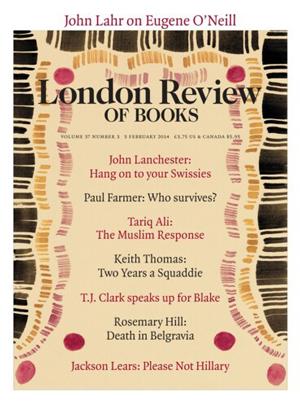
4. Who Lives and Who Dies
Type: Article
Author: Paul Farmer
Recommended by: Mark Brender (National Director)
This is one of my favourite pieces of Paul Farmer’s writing. ‘Who Lives and Who Dies’ is a narrative exploration of which patients are seen by the global community as deserving of health systems that prioritize dignity and quality care, and which are deserving of blame for the circumstances that brought them to seek care in the first place. It was written shortly after the onset of the Ebola epidemic in West Africa. During that time, Paul describes, “it is vividly apparent that prevention is being pitted against care” by those with the privilege of looking in from the outside. This is an all-too-common practice that Paul critiqued in much of his writing.
There is much we can do to spread better fortune to those who rarely experience it. This includes re-examining how health care is financed in both rich and poor parts of the world. The closing story of Paul’s friend Amartya Sen, who became one of the world’s leading development economists partly because he had access to radiotherapy at a young age, shows how far we still have to go. In most places where PIH works, the technology that saved Amartya Sen’s life in India more than 60 years ago still doesn’t exist. The work continues. Read the full article here.
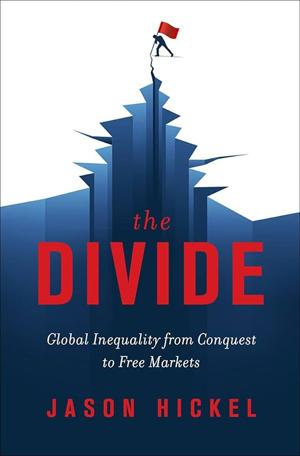
5. The Divide: Global Inequality from Conquest to Free Markets
Type: Book
Author: Jason Hickel
Recommended by: Laura Kim (Senior Development Officer)
In “The Divide: Global Inequality from Conquest to Free Markets,” Jason Hickel takes readers on a compelling journey through history, revealing how colonialism, capitalism, and economic policies have shaped the stark inequalities we see today. In order to understand health economics and how they play into the perpetuation of global health inequity, a deeper understanding of the economic policies that govern much of the world is needed. Hickel argues that resource and labour exploitation has created this divide between the rich and the poor.
A comprehensive primer on global inequality, this book challenges notions of development, growth, and poverty by examining the effects of past and present human-invented practices that perpetuate social injustice. With a blend of rigorous research and engaging storytelling, Hickel calls for a re-examination of the systems that perpetuate disparity, urging readers to consider alternative paths toward equity and sustainability.
